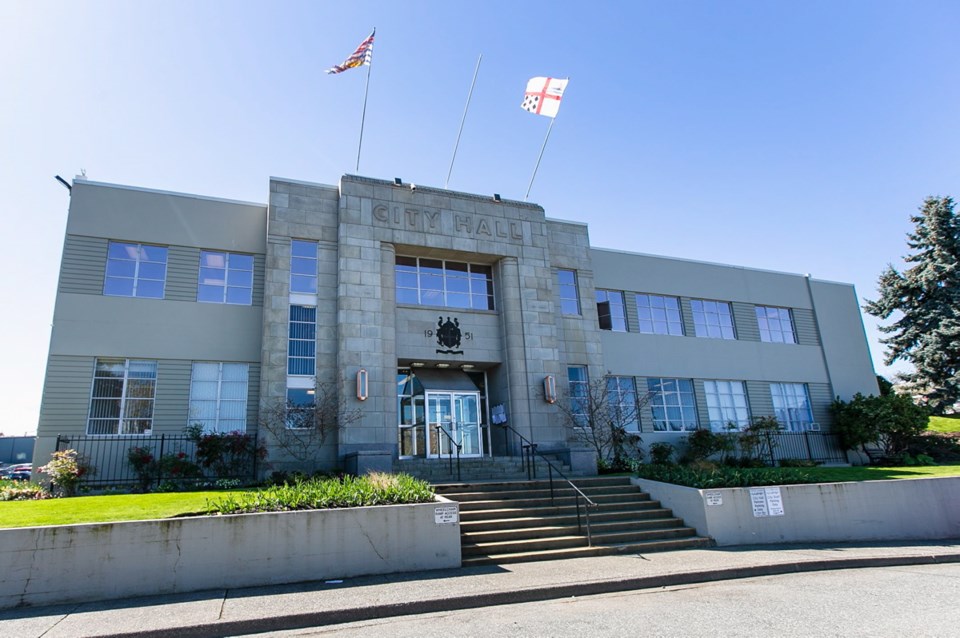Nanaimo council is considering ways to alleviate financial impacts to individuals and businesses from the coronavirus pandemic, including potentially putting off a planned tax increase to 2021.
Staff have presented three scenarios for councillors to consider as they take a second look at a 2020-2024 financial plan endorsed prior to B.C. declaring a provincial health emergency.
Under the existing plan, residential property taxes would climb by 4.5 per cent this year, which includes a one per cent levy for a reserve fund. That would see the property tax for a typical home — valued at $527,145 — rise by $95 this year on the municipal portion of taxes. Water, sanitation and sewer fees are another $49, bringing the total to $144. Each of three scenarios presented by staff includes the same utilities charges.
A second option that would spread the increase over this year and next would see2020 taxes increase by 3.8 per cent, bringing the extra amount to $79 for a typical home.
A third option would bring only a one per cent increase for the reserve fund, resulting in the owner of a typical home paying an extra $21. That would push property tax increases to 2021, however, with a starting point of a projected 6.8 per cent, staff told council. The province requires that property tax rules be approved by May 15.
At a meeting via video link on Monday, Coun. Don Bonner expressed concern that owners of homes in the lower end of the market might be more affected by a tax increase than those with high-value properties. He asked staff if it would be possible to develop a picture of how owners of more modest properties might be affected. Councillors also looked at the idea of shifting the taxation burden from businesses (and other categories, including light industry) to the residential class.
A staff report said many Nanaimo businesses have not been able to operate since the emergency declaration.
Council backed a motion to look at pushing back the late payment penalty date for residential property taxes to Oct. 1 from July 3, the day after property taxes are due.
Last week, the province announced it would give businesses and landlords until Oct. 1 before late-payment penalties are imposed. B.C. first announced that commercial property tax bills would be cut by 50 per cent and then last week cut them by another 25 per cent.
Council earlier approved extending due dates for water, sewer and garbage services to 90 days from 30 days. It also approved a borrowing bylaw to allow it to access funds if it runs low.



